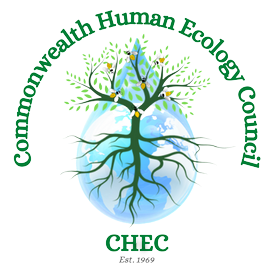CHEC at the Malta Commonwealth Conference - Day Two
Today marked the opening of the People’s Forum, which aims to bring people from around the world together to discuss key issues facing Commonwealth people. The theme of this forum is the idea of ‘resilience’ and the day was peppered with various discussions on this idea. It was noticeable throughout the day that although the Commonwealth has incredible diversity (in terms of income, culture, religion etc.) many of the debates took place in a cross-cultural context.The forum was opened by Jacqueline Micallef-Grimaud (Chair of the CPF Sub-Committee), Sir Anand Satyanand (Commonwealth Foundation Chair) and Kamalesh Sharma (the Secretary General of the Commonwealth Secretariat). The speeches were linked by a desire to make Development Goals a reality, strengthen similarities and end discrimination on the basis of sexual identity. Such discrimination, according to Mr. Sharma, “is incompatible with Commonwealth values”. This view was repeated in an extremely well received speech by the Prime Minister of Malta, Hon. Joseph Muscat. It was heartening to see how well these remarks went down in the room.
Following this was a keynote address by Dr. Vandana Sharma on ‘what makes resilient societies?’. The speech was full of interesting facts that shows that human ecology should not just be considered an environmental issue, but a security one as well. Dr. Sharma explained how Lake Chad has halved in size from 2,000 sq. km in 1982 to 1,000 sq. km in 1994, and continues to shrink. This decline in a vital natural resources has coincided with the rise of Boko Haram in the area, who have displaced 2.4 million people since 2014. This argument has also risen as an explanation to the Syrian conflict and must be considered a huge part of future discussions into human ecology.Afterwards a debate was held on ‘deconstructing resilience’. This allowed delegates to hear from parts of the Commonwealth that are rarely heard from – such as the indigenous communities in Canada. Speaker Clayton Thomas Muller spoke powerfully about the resilience of indigenous people around the world in the face of challenges, both environmental and human. There was also an important discussion on incorporating culture into resilience.In the afternoon CHEC delegates attended a discussion on “What to measure? Alternatives to GDP”. It was put to the audience that not one of the top 10 countries for GDP is in the top 10 for happiness. The happiness list is topped by Costa Rica – it was noted that Costa Rica has combined its ministerial energy and environmental departments and has only used renewable energy this year. The case study of Vanuatu was also used. Although it is rated as a ‘least developed country’ by the UN it also consistently scores high in happiness indexes. So why is Vanuatu – which has a low gross national income, weak human assets and a high degree of economic vulnerability – so happy? It was argued that the nation’s traditional economy provides food, social security and cultural identity.What are your thoughts on what was discussed? Let us know on Twitter.
